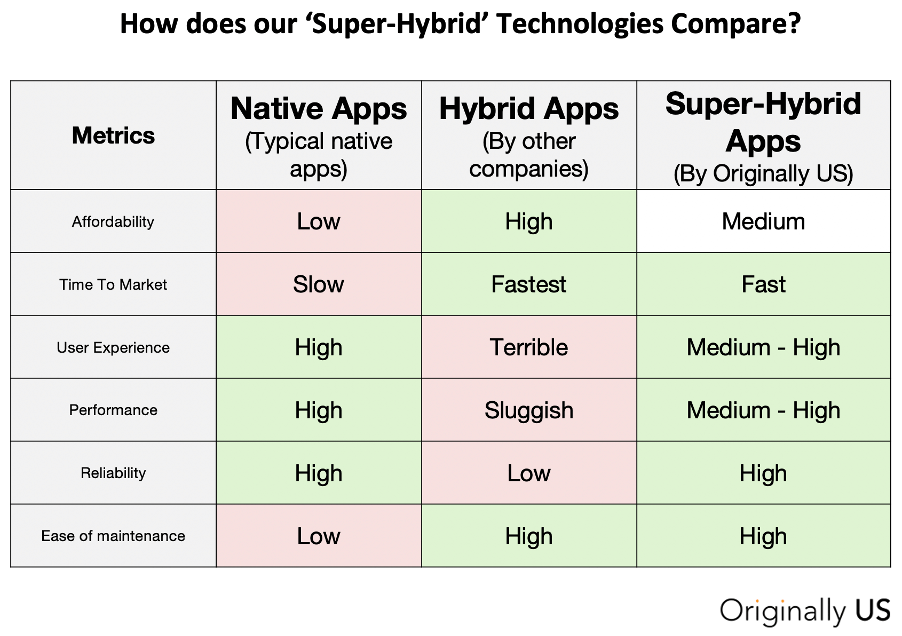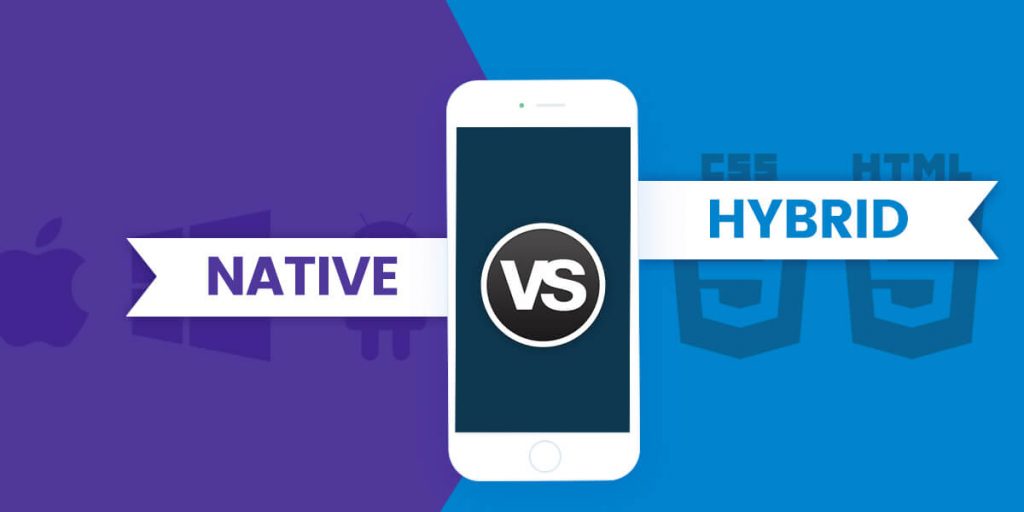The day has arrived. Your boss has tasked you to source for a mobile application developer or vendor and manage a mobile application project for your company. But all the information you can find online is overwhelming: you hear about native and hybrid development, but have no idea how to differentiate them. Fret not—that’s what this guide is for! Let’s walk you through what exactly native and hybrid app development mean. We will then assess their strengths and weaknesses respectively. By understanding these details, you can properly evaluate which one to go with.
Native apps are those developed for specific mobile operating systems, like iOS or Android. Because of this, they respectively use programming languages that are officially supported by the platform. This is Objective-C and Swift for iOS, Java and Kotlin for Android. Moving on to hybrid apps: they are essentially websites that can be stuffed into native apps, having a similar look and function. They are built using the like of JavaScript, CSS, and HTML. One code base covers multiple platforms (on both iOS and Android), unlike native apps. How then does this make them compare?
Let’s start with the pros of native apps:
- Rich user experience: This is the most significant advantage as UX is often the key to an app’s success. Developers and designers can tailor the functions and features to one platform with its unique details, design language, and custom gestures. With such unity, users may intuitively navigate the interface while seamlessly picking up your app’s functionality.
- Best performance and speed: Native apps have full access to the hardware features and database of a device. Additionally all content, visual elements, and code are already supported on the platform and are available for instant loading. Responsive and fast.
- Most secure: As everything is coded into the infrastructure of the app, it generally guarantees reliable data protection for your users.
And here are the cons:
- Cost of development: Developing a native app is complex and requires app developers who are proficient in the specific platform’s programming language.
- Time taken for development: Takes longer to build and you might need an app in both iOS and Android—which would be require an even more generous timeline.
Next, let’s move on to the pros of hybrid apps:
- One app for multiple platforms: This is often a decisive factor; with just one code base, hybrid apps can run on both iOS and Android. It becomes easy to have the largest audience reach in building brand awareness with this versatility.
- Cheaper, faster to build and update: Less time-consuming as developers won’t have to create a new code base for each platform. Testing or updating is easier, QA engineer takes less time to ensure that your app is bug-free and ready to go. Development time usually impacts costing, so the budget on hybrid apps is often more wallet-friendly.
And finally—the cons:
- Relatively lower performance and reliability: Unlike native apps that can tap into the database and features of the specific device, hybrid apps have to rely on plugins. Features could be lacking or unreliable as plugins don’t fully cover all that native has.
- Poorer user experience: As a one-size-fits all model, its interface has to cater to both iOS and Android platforms. There cannot be too much customization for either device user or the other’s experience will suffer. This generally results in poorer UX, although you can barely tell for notable high-quality hybrid apps such as Instagram, Uber, or Gmail.
Ultimately, the kind of development you should choose is ultimately dependent on the context and aims of your app. It’s agreed that deciding on a native or hybrid app is goal-dependent.
Is there anything in the market that provides a balance between the pros of both native and hybrid mobile apps?
Developed in-house over more than 5 years, we have developed our own Super-Hybrid technology stack based on ReactNative that is engineered to offer best-in-class balance between performance, time to market and reliability. Our Super-Hybrid apps are built upon a new generation of hybrid development technologies. While more than 90% of the code is shared between the iOS and Android version, our Super-Hybrid apps also offers close-to-native user experience, performance and reliability.
Here’s a quick comparison table of how the different technologies stack up.

Interested to know more on our Super-Hybrid approach and how we can offer you an optimal balance between affordability and performance? Do not hesitate to drop us an email at hello@originally.us. We’re more than happy to assist.




